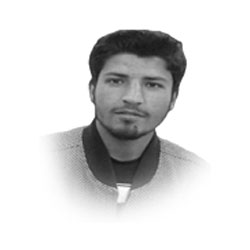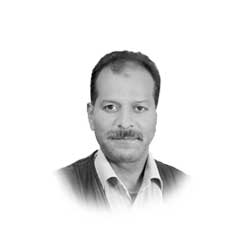By: Dawood Khan
The foundation of mankind is based on differences. Human beings have different colors, creeds, heights, etc. Such differences do not interfere in the harmony of living with each other. The differences continue to remain when it comes to different sects within the religion of Islam. There are several sects in the religion prevalent in our country. Historically, many incidents show bitter relations among various sects. As of today, the younger generation is more tolerant in terms of bearing and acknowledging the different opinions of all the sects; therefore, all sects ought to live in harmony and coherence at a time when the world has turned into a global village.
“Sect” is a Latin word meaning “to follow”. Sectarianism refers to the practicing of different beliefs within any region. In this regard, many people belong to different sects who reside inside Pakistan. According to a survey, the two major sects in Pakistan are Sunni and Shia. Much of the population consists of Sunnis and the Shias comprise 15–20% of the total population of the country. Within the Sunni sect, 50% of them are Brahelvis and 20% are Deobandis. After Iran, Pakistan is the largest state containing the highest Shia population. There are several periods concerning sectarian issues in Pakistan. The first period was from the day of independence to 1977. The second period began in 1977 and remained for ten years. The third one remained for sixteen years which ended in 2004. According to Human Rights Watch, up till now thousands of Shias have been killed since 2008.
Sadly, even today countless incidents highlight the misunderstandings among various sects. On several occasions, the soil of Pakistan has been used for proxy wars between Saudi Arabia and Iran. Up to four thousand people died in sectarian violence from 1980 to 2000. According to the South Asia Terrorism Portal, 631 incidents in Pakistan between 2007 and 2011 led to the killings of 1649 people. When needed, the sectarian rift is effectively used by the religious, political, and military elite for grabbing power. Thus, it results in the exploitation of the region.
Thinking logically, the important point that leads to sectarian conflicts is the narrow understanding of Islam. This has become a problem of national concern today. The so-called scholars spread the seeds of misunderstanding among the illiterate public. Hence, when there is a point of difference in views and thoughts, no one keeps patience with having different views. In reality, Islam is a religion of peace that strongly emphasizes minimizing differences and living in peace and harmony with everyone and everywhere. There are more instances showing the unfortunate conflict i.e., sectarian violence. In 2010, 509 people were killed and 1170 injured in 57 incidents of violence. The figures decreased in 2011 where there were 203 killings and 297 injuries during 30 incidents. In 2012, there were 51 incidents and the number of people killed was 177. Even though the sectarian issues will never fade, yet there are some recommendations to living in harmony with each other.
It is the need of the hour to create “Ulama Council” from all schools of thought. The council must aim at handling, addressing, and devising a solution to all the issues that develop mistrust among the sects. In addition, the government should formulate and legislate laws to curb sectarian violence. The formulated laws shall be executed in an impactful way by considering the recommendations and suggestions of the “Ulama Council”. Similarly, the religious scholars shall inform the public about the nuances in a broader perspective. They should deliver to the audience to practice patience and live in harmony when there is a difference in opinion on a topic or any point. The narrow interpretation of Islam should be strongly discouraged. Considering the 70% killing of Shias between 1985–2005 and the killings of hundreds of Brahelvis Sufis in more than 70 suicide attacks during 2005–2010, the scholars should have a clear voice that no one possesses the right to kill anyone. Moreover, the concerned departments should encourage research studies on the sensitive topic that will help produce intellectuals in the country, because nobody is perfect. In this way, people shall have greater chances of getting rid of these sectarian issues. This will bring peace and prosperity both among people and in the country. As said by Imam Shafi, “I consider my opinion accurate, but I do profess that possibility of error lies in it; I consider others opinion wrong, but I do not neglect that possibility of accuracy lies in it”.
The writer is a Final-year Civil Engineering Student at UET Taxila. He can be reached at [email protected]






